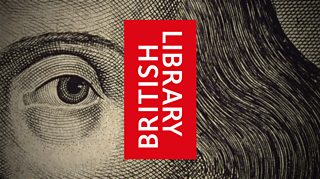Shakespeare's tragic heroes appear in Launceston
Even the smallest places in England had an appetite for the Bard and his charismatic characters, proving that when it comes Shakespeare, size isn’t everything.
At the beginning of the 19th Century, Launceston had a population of fewer than 1,500, not unusual for a small town in Cornwall. But there was theatre in this relatively remote spot, and it wasn’t only the popular farces of the day.
-
![]()
Much ado near me
Hear more Shakespeare stories on BBC Radio Cornwall
-
![]()
Shakespeare Festival 2016
The BBC celebrates the genius of the bard

Launceston was a busy little market town, known for its wool industry and for straw hats. It is only just situated in Cornwall, with the River Tamar that forms the boundary between the county and Devon close by.

Even the smallest places in England had an appetite for the bard and his charismatic characters
For travellers it was the way into Cornwall, and these visitors along with the locals people, would have made up the audience of this particular evening.
They could buy their tickets from the inns in the town or from the cast, and Mr Jefferson or Mr and Mrs Thomas. It is a 'benefit' for the husband and wife, which means that they have chosen the parts they play and will receive the profits from the performance, minus overheads.
This poses a choice for the ambitious, but unknown actor – should he or she select a role that will test their ability and risk the takings at the box office or select a well-known 'name' instead.
The actors have travelled from the Theatre Royal in Plymouth and could call themselves His Majesties Servants.
There are several members of each family in the cast – as you might expect as everyone had a job to do either on stage or behind the scenes.
Mrs Jefferson plays Queen Gertrude with Miss E Jefferson as Ophelia; Master Jefferson in the roles of Lucianus and a Grave-digger; and the Ghost by Mr Jefferson Junior. Mr Thomas is Osrick and Mr J Thomas is Horatio.
As for Mr Glassington or Hamlet on this particular evening, Wednesday February 10th, 1790, research has yielded very little.
Launceston expanded during the 19th Century and, as we can see by this second playbill dated 24 February 1832, Shakespeare continues to be performed.
This time there is a location listed for the theatre.
As the number of educated people grew, there was a demand for talks and discussions. Writers such as Shakespeare were studied and literary criticism was beginning to become a subject worthy of study.
It is only fitting that the place chosen for the evening’s performance of Romeo and Juliet was 'the Lecture Room'.
These two playbills straddle an era which was dominated by two patent theatres both in London.
Until the Theatres Act of 1843, performances of works such as Shakespeare were permitted by local magistrates occasionally for up to sixty days at a time, proving that the location was not within twenty miles of the capital, eight miles of a licensed provincial theatre, fourteen miles of Oxford and Cambridge or ten miles from a royal residence.
There is no evidence that these two groups of actors ever returned to perform Hamlet and Romeo and Juliet in Launceston.
But the Bodmin area has inspired another brooding yet romantic character, Ross Poldark from Winston Graham’s novels of the same name.
About Shakespeare on Tour
From the moment they were written through to the present day, Shakespeare’s plays have continued to enthral and inspire audiences. They’ve been performed in venues big and small – including inns, private houses and emerging provincial theatres.

BBC English Regions is building a digital picture which tracks some of the many iconic moments across the country as we follow the ‘explosion’ in the performance of The Bard’s plays, from his own lifetime to recent times.
Drawing on fascinating new research from Records of Early English Drama (REED), plus the British Library's extensive collection of playbills, as well as expertise from De Montfort University and the Arts and Humanities Research Council, Shakespeare on Tour is a unique timeline of iconic moments of those performances, starting with his own troupe of actors, to highlights from more recent times. Listen out for stories on Shakespeare’s legacy on your BBC Local Radio station from Monday 21 March, 2016.
You never know - you might find evidence of Shakespeare’s footsteps close to home…
Craig Henderson, BBC English Regions
-
![]()
Shakespeare Lives
The nation’s greatest performing arts institutions mark 400 years since the Bard's death
Related Links
Shakespeare on Tour: Around Cornwall
-
![]()
Star Shakespearean actor of the London stage performs Shylock in Penzance
The electrifying Edmund Kean in his career-defining role
Shakespeare on Tour: Around the country
-
![]()
Whitby, wealth and a Shakespearean bachelor night
The Bachelors of Whitby sponsor a performance of Merchant Of Venice
-
![]()
A new king and rebranded Shakespeare’s players head first for Shrewsbury
James I established the ‘King’s Men’ as his official group of theatre players
-
![]()
Shakespeare's men perform before the King at Wilton in Salisbury
A royal audience in Salisbury
-
![]()
Caludon Castle: Did Shakespeare perform here for ‘Henry the Harmless’?
Was Shakespeare there during the 1593 'Plague Tour'?








